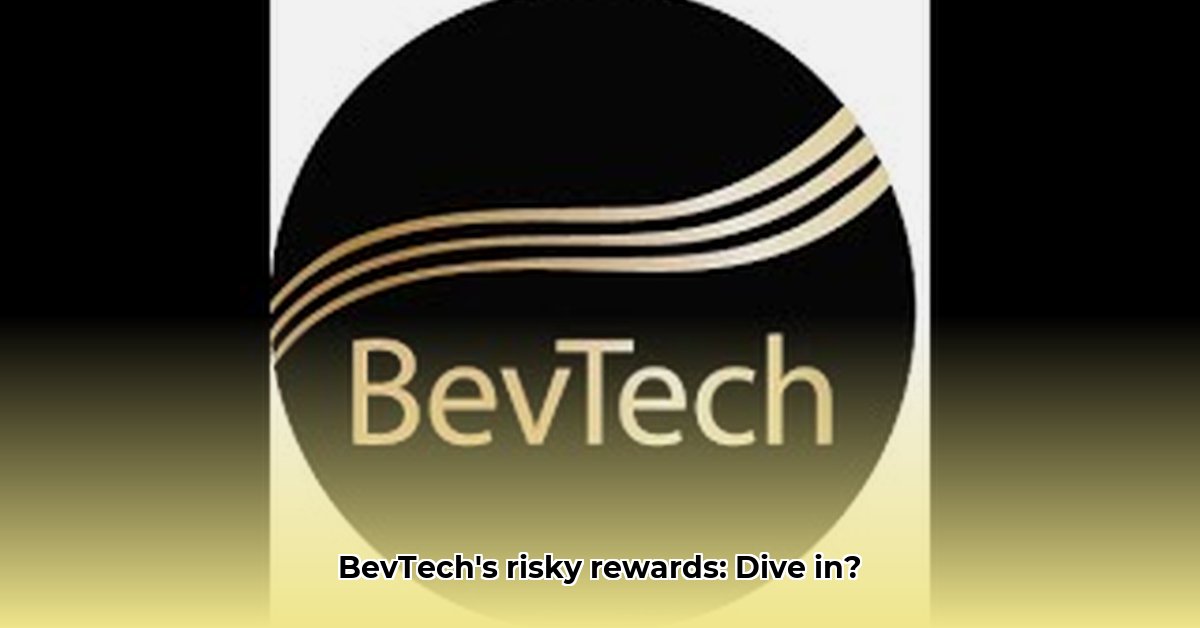
The beverage industry is in the midst of a seismic shift. From AI-powered supply chains to the burgeoning demand for sustainable practices, the landscape is changing faster than a shaken espresso martini. This revolution presents both unprecedented challenges and remarkable opportunities. Companies that fail to adapt risk being left behind; those that embrace change will reap substantial rewards.
Navigating the Shifting Tides: Challenges and Opportunities in BevTech
Forget the predictable rhythms of the past. Today's beverage market thrives on innovation, yet is fraught with complexities. New beverage categories emerge daily, leading to intensified competition. Consumer preferences are in constant flux, driven by evolving health and wellness trends and a growing awareness of environmental impact. How can beverage companies navigate this turbulent sea and steer towards success?
One critical factor is operational efficiency. Imagine a perfectly synchronized orchestra; that is the ideal state of a modern beverage supply chain. AI-powered tools are no longer a futuristic fantasy; they are readily available solutions. These technologies predict demand, optimize delivery routes, and minimize waste – boosting the bottom line and enhancing sustainability. For example, recent studies show that AI-driven predictive analytics can reduce supply chain costs by up to 15%. This is not merely theoretical; it's a demonstrable reality for businesses embracing these technologies.
"The beverage industry is transforming at an unprecedented pace," says Dr. Anya Sharma, Professor of Supply Chain Management at the University of California, Berkeley. "Companies that fail to leverage technology and embrace sustainable practices will struggle to compete."
Another crucial element is transparency. Consumers increasingly demand to know the origins of their drinks, the production methods, and the values of the companies behind them. Open communication builds trust, a critical asset in this era of increased consumer scrutiny. This translates to strong customer loyalty and a positive brand image. The success of several craft breweries, who emphasize transparency and local sourcing, clearly demonstrates the value of this approach.
BevTech's Ripple Effect: From Farm to Fridge
The recent BevTech 2025 conference highlighted the urgent need for agile strategies. Forward-thinking distributors are already reaping the benefits of technology-driven efficiency, providing 24/7 service and customized solutions tailored to individual client needs. These are not hypothetical scenarios; they are real-world examples of BevTech in action.
The growing emphasis on sustainability is another powerful wave. Consumers are actively seeking out ethically sourced ingredients and recyclable packaging. Ignoring this trend is a sure path to failure. However, embracing sustainability presents a tremendous opportunity. Companies perceived as environmentally responsible often enjoy enhanced brand loyalty and a significant competitive edge.
Charting a Course for Success: Practical Steps in BevTech
Here's a structured approach to help navigate the changing tides and achieve sustainable success:
Optimize Inventory Control (0-1 year): Implement sophisticated inventory management systems to minimize waste and improve efficiency. This can result in a 10% reduction in storage costs, according to industry reports.
Enhance Internal Communication (0-1 year): Foster seamless communication across all departments to ensure efficient operations and rapid response to market shifts.
Explore Private Label Opportunities (0-1 year): Develop private-label products to meet specific niche consumer demands, increasing revenue streams and expanding market share.
Integrate AI for Sales Forecasting (3-5 years): Leverage AI-powered predictive analytics to forecast demand accurately, optimizing production and minimizing waste. Studies indicate a potential 15% reduction in logistical costs through AI integration.
Develop Sustainable Packaging Solutions (3-5 years): Invest in eco-friendly packaging alternatives to meet growing consumer demand for sustainability. This demonstrates commitment to environmental responsibility and attracts environmentally-conscious consumers.
Implement Advanced Logistics Systems (3-5 years): Invest in cutting-edge logistics technology to streamline the supply chain, enhance delivery efficiency, and reduce associated costs.
Leverage Data to Understand Customer Needs (3-5 years): Use data analytics to gain deeper insights into consumer preferences, enabling the development of targeted marketing campaigns and product offerings.
Invest in R&D for Sustainable Beverages (3-5 years): Fund research and development to innovate sustainable solutions, creating new beverage categories that align with environmental concerns.
Mitigating Risks, Amplifying Gains: A BevTech Risk Assessment
Proactive risk management is crucial for long-term growth. Here are some key risks and effective mitigation strategies:
AI-driven supply chain: While AI offers immense potential, risks include system failures, data breaches, and significant upfront investment. Mitigate these risks through robust security systems, gradual implementation, and comprehensive data backups.
Eco-friendly packaging: Higher costs and potential quality challenges can arise from switching to eco-friendly packaging. Partner with reliable sustainable material suppliers and maintain stringent quality control measures throughout the process.
New beverage categories: Launching new products carries inherent risks, including high failure rates, fierce competition, and regulatory hurdles. Thorough market research, pilot programs, and adaptable strategies are essential for success.
The BevTech revolution is not a trend; it's a fundamental transformation. The choice to embrace or resist this change will significantly impact the future of your beverage business. The time for decisive action is now. Don't simply respond to change; actively shape it and lead the way towards a more sustainable and technologically advanced beverage industry.